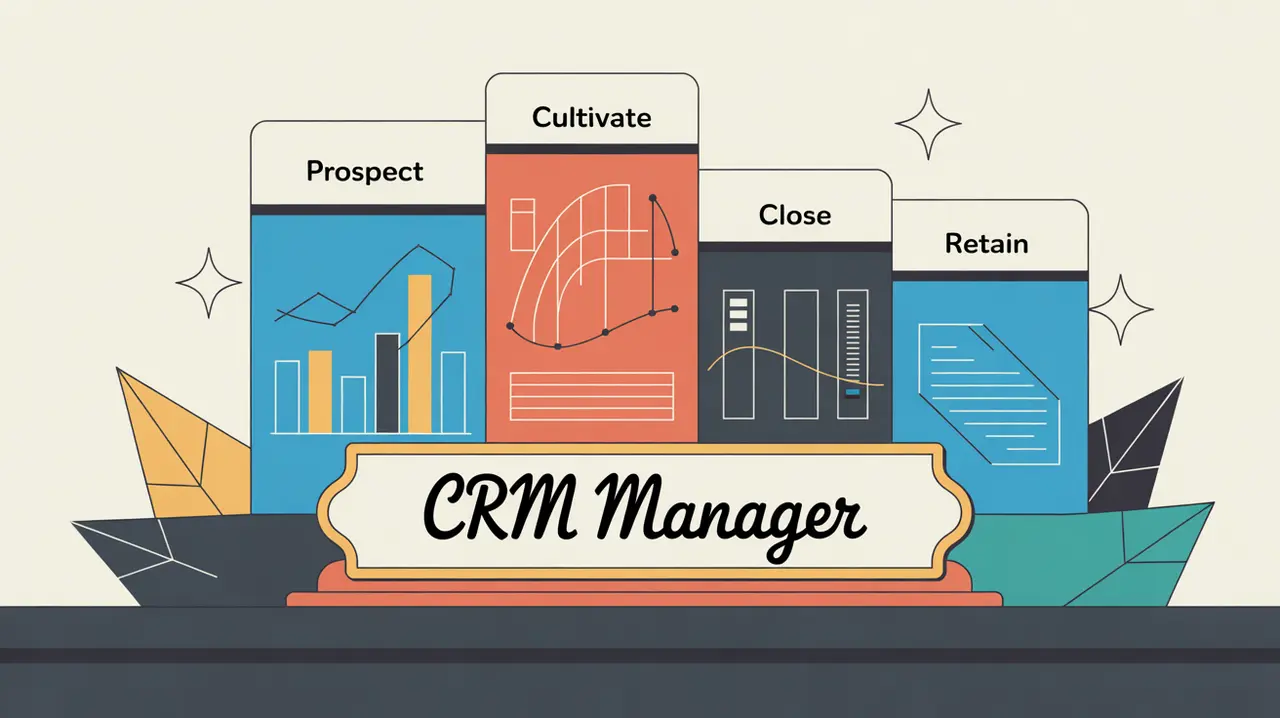What Does the CRM Manager Role Involve?
A CRM manager oversees the strategy, administration, and optimization of the organization’s customer relationship management (CRM) system. This involves maintaining data integrity, improving system functionality, supporting user adoption, managing integrations, and using CRM insights to drive fundraising, communications, and program engagement strategies. The role typically sits within fundraising, communications, data, or operations functions depending on the organization’s structure. In both nonprofits and social enterprises, CRM managers play a central role in ensuring that data systems support mission delivery by enabling coordinated, data-informed stakeholder engagement.
At What Level does this Role Operate?
Mid to Senior Level: This role typically reports to a director of development operations, director of communications, or data lead, and may supervise assistants, administrators, or consultants. CRM managers are expected to work with a high degree of autonomy to align system design with organizational goals and support cross-departmental needs.
Relative Employability: CRM manager roles are in strong demand across nonprofits, social enterprises, educational institutions, and philanthropic organizations. As data-driven decision making and stakeholder engagement become more central to operations, organizations increasingly seek experienced professionals who can manage complex CRM systems strategically.
Relative Pay Scale: Within nonprofits and social enterprises, CRM manager roles sit in the mid to upper mid pay bands, reflecting their technical expertise, cross-functional responsibilities, and leadership of critical data systems.
What are the Key Responsibilities and Activities?
- Manage and optimize the organization’s CRM system, ensuring data accuracy, functionality, and alignment with strategic goals
- Develop and implement policies and procedures for data entry, maintenance, and security
- Support and train staff across departments to effectively use CRM tools for fundraising, communications, and engagement
- Oversee integrations between the CRM and other platforms such as email marketing, finance, or program systems
- Collaborate with leadership to design and implement segmentation, reporting, and analytics that inform decision making
- Manage system upgrades, customizations, and vendor relationships
- Supervise CRM assistants or administrative staff and ensure timely task execution
- Troubleshoot issues and provide technical support to users across the organization
What Core Competencies and Qualifications are Needed?
Required Qualifications and Experience
The following reflect common qualifications and experience expected for this role, while recognizing that pathways may vary by context, organization, and region.
- Relevant academic background in information systems, business administration, communications, or a related field, or equivalent professional experience
- Several years of experience working with CRM systems, including administration, reporting, and integrations
- Strong understanding of data management principles, privacy standards, and organizational data needs
- Demonstrated ability to train staff, manage systems strategically, and translate data insights into action
- Experience managing projects or supervising staff within CRM or data teams
Key Competencies
- Strategic CRM system management
- Data governance and analytical skills
- Technical troubleshooting and problem solving
- Training and cross-team collaboration abilities
- Project management and vendor coordination
- Attention to detail combined with strategic thinking
How are AI and Automation Shaping this Role?
An AI-native CRM manager will look to AI and automation to enhance data integrity, drive segmentation strategies, and generate actionable insights. They can use AI tools to analyze donor and stakeholder behavior, recommend targeted engagement approaches, and identify trends across datasets. Automation can support data cleaning, workflow routing, and cross-platform synchronization, enabling the CRM manager to focus on strategic planning and user empowerment. By integrating AI thoughtfully, CRM managers can significantly increase the sophistication and efficiency of their organization’s engagement strategies.
What Career Pathways and Transferable Skills are Associated with this Role?
CRM manager roles often lead to director of development operations, director of data and insights, or senior digital strategy roles. The combination of data management expertise, strategic planning, and cross-departmental leadership developed in this role is transferable across nonprofits, social enterprises, educational institutions, philanthropic organizations, and the private sector. CRM managers are well positioned to shape organizational engagement strategies and data infrastructure at more senior levels.







